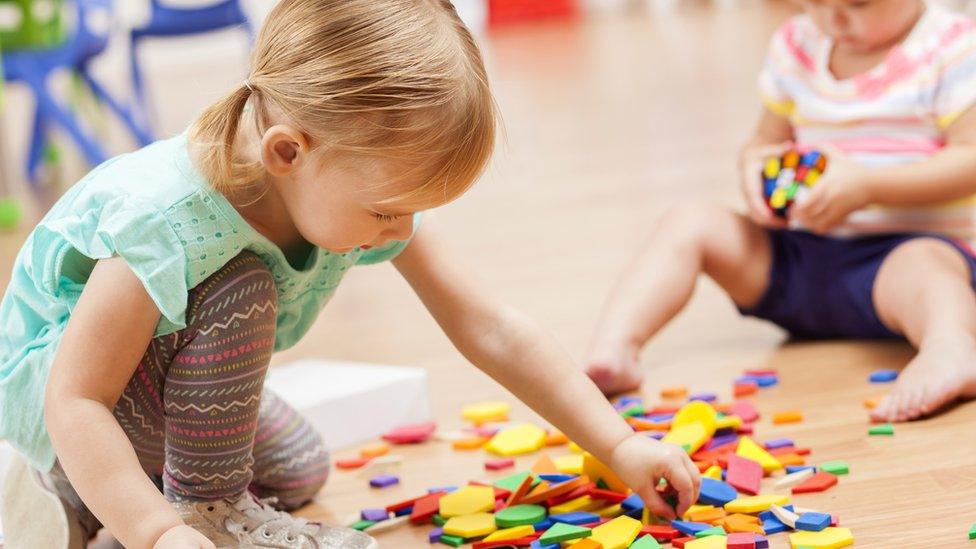Scotland in 'grave danger' of missing child poverty targets
- Published
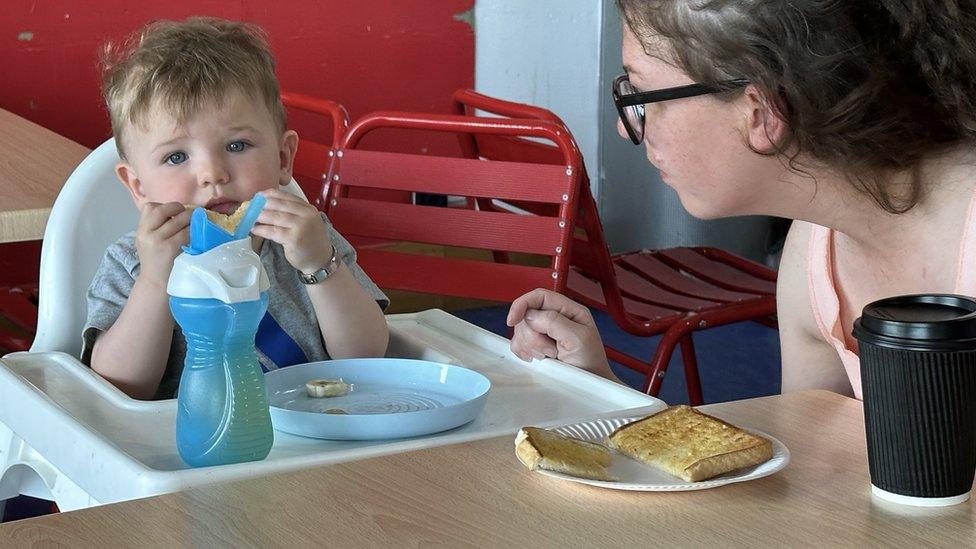
Kirstie McCall says she struggles to find affordable childcare for her son Zak
Scotland is likely to miss key targets on reducing child poverty this year unless urgent action is taken, according to a government watchdog.
The Poverty and Inequality Commission's chairman Bill Scott told the BBC there was a "grave danger" of Scotland also missing its final 2030 target.
The watchdog said the introduction of the Scottish Child Payment had made a real difference to child poverty.
But it said more needed to be done to give parents the chance to earn money.
Mr Scott said extra benefits payments in the form of the Scottish child payment were projected to have reduced child poverty by as many as 50,000 children.
However, even with that reduction, both next year's interim target and the 2030 goal will be missed.
Figures released in March showed 24% of children in Scotland were living in relative poverty between 2019 and 2022.
The Scottish government aims to reduce that figure to 18% by March 2024.
And it wants the figure to be down to 10% of children by 2030.
The figures for 2019-2022 should that there were about 250,000 children in Scotland in relative poverty, which means they are in a household which has an income less than 60% of the median average for families of the same size across the UK.
The Poverty Commission estimates that the new Scottish Child payment could have reduced the poverty figure by four or five percentage points, bringing it closer to next year's target.
The report says the increase of the Child Payment to £25 per week and its roll out to under-16s represents "significant progress" and "will make a real difference to the lives of children and families across Scotland".
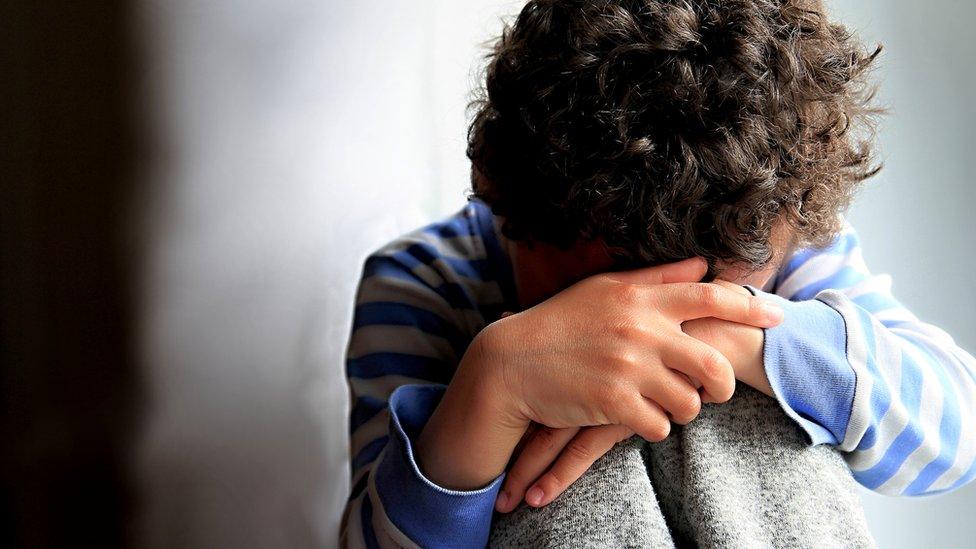
The Scottish child payment is projected to have reduced child poverty by as many as 50,000 children
The benefit was introduced in February 2021 and is received by more than 300,000 children in Scotland.
However, the report said the commission was "concerned" about a lack of urgency or clarity on delivering other programmes.
It points to cuts to parental employability support and "slow" progress on funded childcare.
It said the latest figures "do not show evidence of progress in reducing poverty at the scale that is required to meet the targets".
The Poverty Commission acknowledges that last year's budget was strained by inflation, public sector pay increases and "mitigating the cost of living and supporting Ukrainian displaced people".
Fixed budget
Mr Scott told the BBC the majority of children living in poverty were in working households.
"We need to see improvements in paid-for childcare for low-income families, particularly for very young children, after-school for older children, primary and secondary-aged children, because the real problem is underemployment rather than unemployment," he said.
"If we allow those parents to increase the number of hours that they work, that would really greatly help reducing poverty overall."
Social Justice Secretary Shirley-Anne Somerville said the report demonstrated that the Scottish government was preventing children falling into poverty and lifting people out of it.
"This year, 90,000 fewer children will live in poverty as a result of the concerted actions and focus we are providing, including lifting an estimated 50,000 children lifted out of hardship through the Scottish Child Payment" she said.
"We will continue to do everything we can within the scope of our limited powers and fixed budget to help give more children the start in life they deserve."
'My wages were only £180 this month'
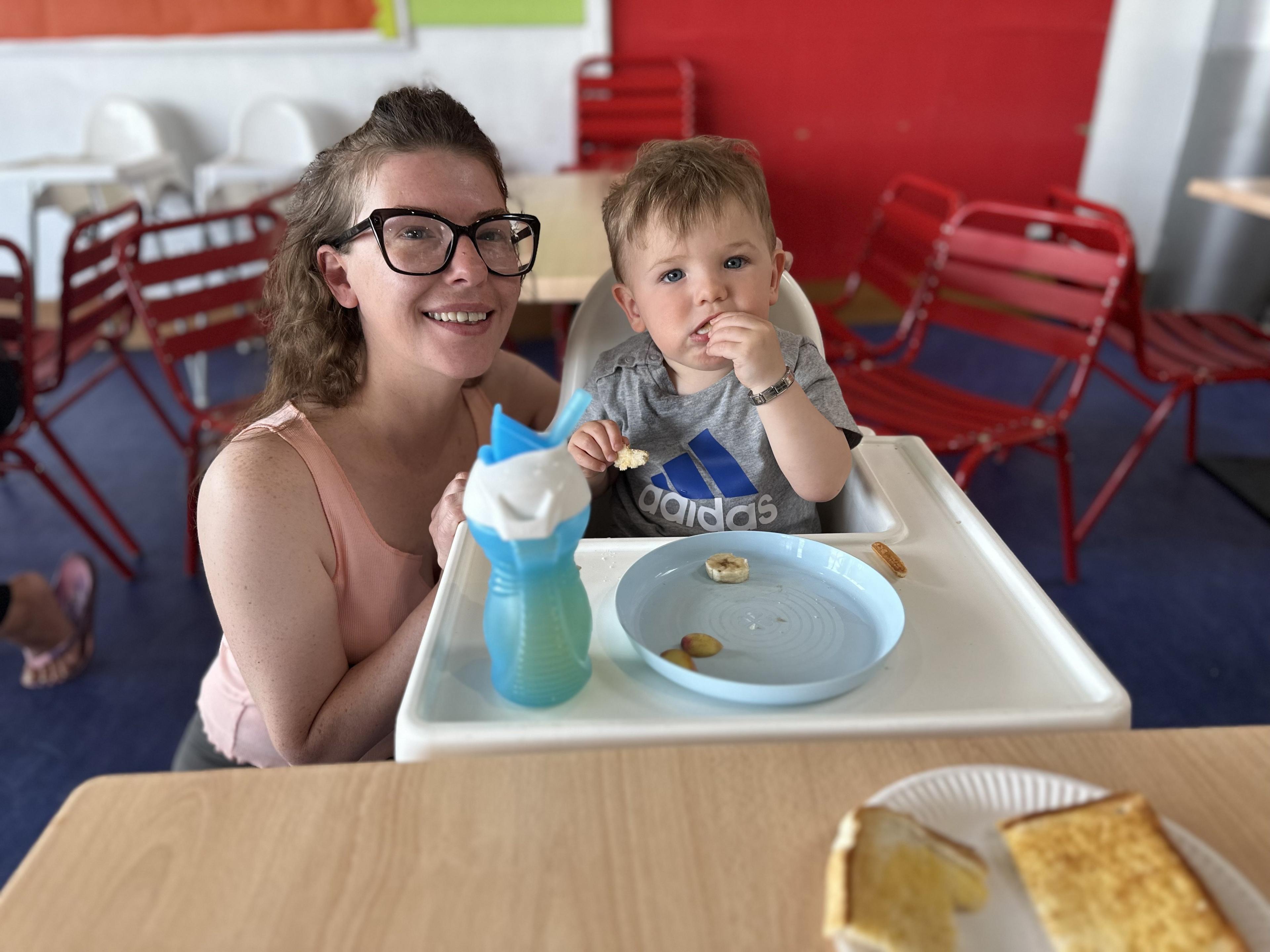
Kirstie McCall lost half her wages last month after she was off sick with Covid
Kirstie McCall lost half her wages last month after she was off sick with Covid.
When BBC Scotland met her at the Jeely Piece playgroup in Castlemilk, Glasgow, she had just learned that her monthly pay only amounted to £180.
"Because I had Covid, I wasn't able to go to work but they don't pay you anymore for being off with Covid," she said.
"I'm worried, I'm stressed and it's my daughter's birthday this month as well."
The 36-year-old mum-of-two works as a part-time support worker for adults with disabilities.
However, due to difficulties accessing childcare for her 15-month-old son Zak, she only works four shifts a month.
She said: "I'm really struggling to find childcare that is affordable. I've tried all the local nurseries and I can't get him anywhere.
"The closest I can get is one place saying they can take him in September.
"But that will be a private nursery so that is going to cost me - I'm not sure how much.
"I can only work one day a week just now when I should be working full-time."
Kirstie added: "At least I still have a permanent job, so when I can get childcare, I can provide a better lifestyle for my family."

Thanks to lower average housing costs, Scotland already has the lowest rate of child poverty in the UK.
Even so, reducing it further is the number one priority for the Scottish government, First Minister Humza Yousaf said at an anti-poverty summit last month.
But he made it clear that ministers should be "hard-headed and realistic" about what could be achieved.
Yes, the projections look like those ambitious interim targets - 18% by the end of this financial year - will be missed.
However, it's important to look at what has been achieved, he said.
More than 300,000 children are now in receipt of a benefit - the Child Payment - that didn't exist just over two years ago.
Experts say that policy alone could see a reduction in child poverty rates in Scotland by four or five percentage points.
When considering this, it's important to note as well the financial environment these past few years - high inflation, Covid-19 and the cost of living crisis.
Anti-poverty campaigners say this is impressive, but more needs to happen to allow parents who need better access to childcare to get into work that pays.
Related topics
- Published23 March 2023
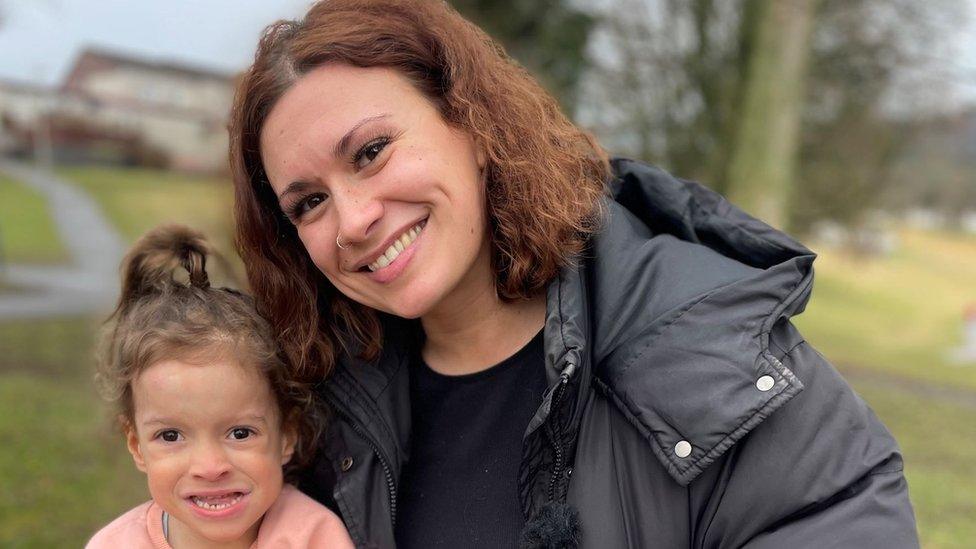
- Published22 September 2022
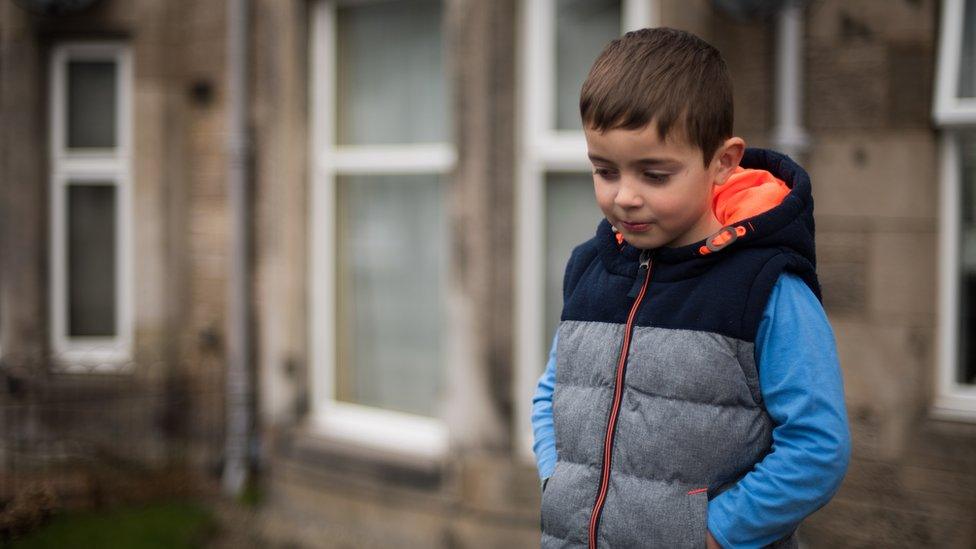
- Published25 March 2021
